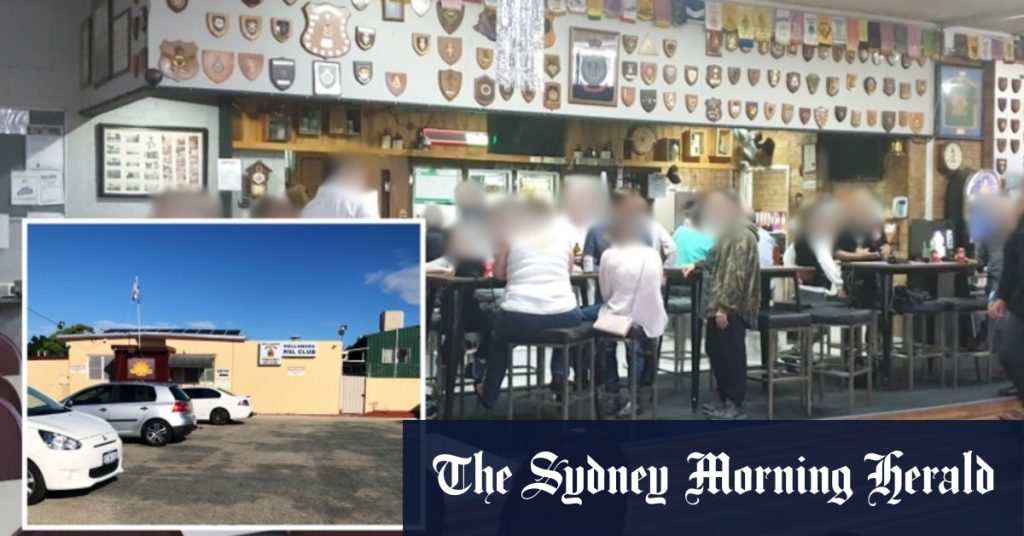The Returned and Services League of Western Australia (RSL WA) initiated a forceful eviction of the Veterans Motorcycle Club (VMC) from its Nollamara premises on February 6, 2024, a move that culminated in a Supreme Court battle. RSL WA board member Trent Mongan, testifying in court, detailed the events of the eviction, which involved police presence, locksmiths, and a subsequent search yielding ammunition, magazine clips, and pharmaceuticals. Mongan emphasized that the police involvement was not part of a criminal investigation but rather a precautionary measure by the RSL to distance itself from any potentially incriminating discoveries. The presence of high-profile figures like Police Minister Paul Papalia and Defence Minister Matt Keogh prior to the eviction underscores the significance and sensitivity surrounding this dispute. The discovered items, including both live and dummy ammunition, imported pharmaceuticals, and magazine clips, added another layer of complexity to the already tense situation.
The crux of the legal battle revolves around the nature of the VMC’s occupancy of the RSL-owned property. The VMC had been using a building on the site for nearly thirty years, based on a 1996 agreement with the Nollamara sub-branch of the RSL. The VMC contends that this agreement constituted a formal lease, granting them legal occupancy rights. However, the RSL disputes this claim, arguing that the agreement did not establish a valid lease and that the VMC’s occupancy was subject to the RSL’s authority. This fundamental disagreement about the legality of the VMC’s presence formed the core of the legal arguments presented before the Supreme Court.
The RSL’s decision to evict the VMC stemmed from concerns about the club’s operations. Allegations surfaced suggesting the sub-branch was operating more like a bikie clubhouse than a traditional RSL branch, including claims of employing scantily clad barmaids. These allegations, coupled with the perceived inappropriate use of the premises, which sits on Crown land specifically granted to the RSL for its members’ use, prompted the RSL board to sever ties with the Nollamara sub-branch, reclaim the property, and disband the local branch.
The VMC vehemently denied the allegations leveled against it, characterizing them as unfounded and an attempt to justify the eviction. They argued that their long-standing presence on the property and the 1996 agreement affirmed their right to remain. In response to the eviction, the VMC filed a counterclaim against the RSL, further escalating the legal conflict. This counterclaim likely sought to challenge the legality of the eviction and potentially seek compensation for damages incurred.
The RSL’s legal representative, Tom Porter, emphasized the VMC’s alleged refusal to vacate the premises even after the initial eviction. He claimed that within five weeks of the forced removal, the VMC had replaced the locks installed by the RSL and reoccupied the building, demonstrating a blatant disregard for the RSL’s authority and further necessitating the legal action. This act of re-entry, according to the RSL, underscored the VMC’s defiance and strengthened their case for seeking a court order to permanently remove the motorcycle club.
The case highlights the conflicting interpretations of the 1996 agreement between the Nollamara RSL sub-branch and the VMC. The RSL argued that the agreement did not grant the VMC a formal lease, meaning their occupancy was always contingent on the RSL’s approval and could be revoked. The VMC, on the other hand, viewed the agreement as a binding lease, providing them with legal protection against eviction. This differing interpretation of the agreement, coupled with the allegations against the VMC and the discovery of ammunition and pharmaceuticals on the premises, formed the backdrop of the legal proceedings, with the Supreme Court ultimately tasked with determining the validity of the eviction and the future of the Nollamara property.

